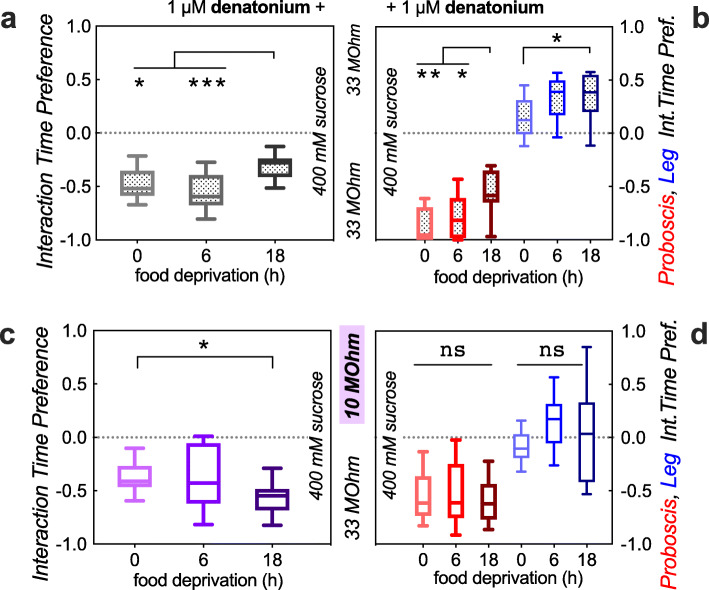Fig. 3.
Unlike bitterness, current is not discounted upon food deprivation. a 18-h deprived flies show reduced avoidance of denatonium (***p = 0.0011, *p = 0.0495, Kruskal-Wallis test with Dunn’s correction, n = 14, 13, 14). b Both leg (blue, *p = 0.031) and proboscis (red, **p = 0.0013, *p = 0.039, n = 14, 13, 15, 15, 14, 16 arenas of 10 males, here and in all subsequent FLEA panels) interactions show decreased sensitivity to denatonium with increased food deprivation. c Current avoidance increases with food deprivation when determining total (proboscis+leg) interaction time (*p = 0.022; n = 14, 20, 20 arenas). d However, neither proboscis (red, ns not significant, p = 0.73) nor leg (blue, ns p = 0.06, n = 14, 20, 21, 15, 20, 21 arenas) interaction time preference changes with food deprivation. The apparent decrease in total interaction preference in c is caused by a shift from leg to proboscis interactions upon food deprivation, lowering the combined Preference Index

